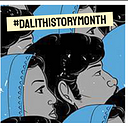Dalit Cremation Workers and the COVID-19 Pandemic
By Anita Das
In India, Nepal and other parts of South Asia, work related to the disposal of bodies through burning of funeral pyres is considered a “traditional” which is code for “caste”.
Through a caste logic — death and therefore cremation work is considered dirty and polluting and many cremation workers are treated as untouchables and the bringers of bad luck. As a result, cremation workers are predominantly Dalit. (1)
They often form an informal and unorganized section. Few people are employed by the state, some are employed through contractors so that they are not owed benefits, leave and other better work conditions, and many workers also rely entirely on small payments from relatives of the dead. (2)
The wage earned from this work is variable, not living wage, and can range anywhere from INR1000 to 10000 (USD 13 to 130) a month. Conditions are extremely poor. They face health hazards from high smoke exposure, high risk of contracting infections from bodies, severe mental health issues arising from dehumanizing work, constant proximity to death, and treatment by society. (3)
This has been the status of their lives well before the pandemic.
With the added weight of the pandemic, cremation workers have seen nothing less than hell in their lives. Suddenly, in doing this miserable work, they became additionally exposed to a killer virus and astronomical 14-hour work days. People who were dealing with 10 bodies a day were suddenly inundated with up to 100.
There was no reliable access to training, vaccines or PPE for them. Many worked all throughout this period without suits or even masks. Many could not wear PPE, the heat of the continuously burning pyres would melt their PPE equipment and the masks in the presence of heavy smoke would cut their breathing to unbearable levels. There was no effort to provide them with PPE that matched their conditions.
During this time, cremation workers fought back and even wrote the state and other bodies demanding the be allowed to at least work in shifts, be paid for all the additional work they were doing, and have access to prioritized vaccination. Vaccination was particularly important to them because so many people did not have the option to isolate from their families to prevent infection from passing to their loved ones.
Workers even said that even if they knew that their co-worker tested positive for COVID-19, neither they nor their co-worker had the option to stop working.
At the peaks of the pandemics, many Brahmins who worked as priests abandoned their jobs or charged up to INR 25,000 for rites on one body. At this point, Dalit cremation workers took over saying rites. Even if the relatives were unsatisfied with this deeply caste-congruous arrangement, they were literally left in the moment without a choice. “Better some rites than none”, may have been a thought.
In addition to this, cremation workers were even seen counseling the distraught families of the dead or advising them on how to approach the paperwork involved post the cremation.
There is no record kept of how many cremation workers and their family members died from exposure to COVID-19.
While the larger society has to be grateful for the service provided by Dalit workers, rhetoric that glorifies and allows the continuing of this dehumanizing work can be considered morally defunct.
Cremation workers deserve better recognition in the form of living wages permanent employment, benefits, proper training, equipment and healthcare. But even as they work towards these goals, we need to work on ending this collective practice of caste. By only hiring Dalits into this work, by creating no alternative employment options for people from these castes, we are essentially forcing Dalits to continue to work these inhumane and degrading jobs. In doing so, we are in actuality, practicing a collective form of untouchability. Dalit workers need alternative work with human dignity, fair work conditions and safety — away from these cremation grounds. Not our praises and gratitude.
Anita Das is an independent researcher and a long-time Dalit History Month writer, whose interests lay in caste and liberatory faith traditions.
1. Zelliot, Eleanor. “Caste in contemporary India.” Contemporary Hinduism: Ritual, Culture, and Practice (2004): 243–272.
2. AICCTU Report Dignity Disposed, A Report on Crematorium and Burial Ground workers in Bengaluru during the COVID-19 pandemic 2021
3. Kumari S., Guite N. (2019) Occupational Health Issues in Funeral Work: A Study of Dom Caste in Varanasi City, Uttar Pradesh. In: Panneer S., Acharya S., Sivakami N. (eds) Health, Safety and Well-Being of Workers in the Informal Sector in India. Springer, Singapore. https://doi.org/10.1007/978-981-13-8421-9_19
